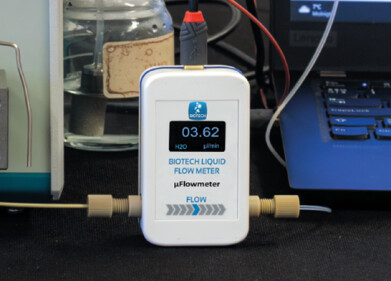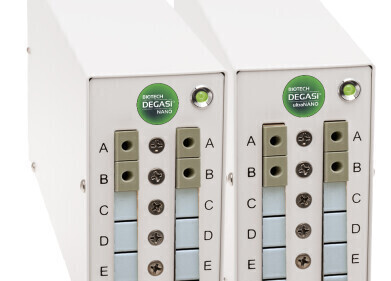HPLC, UHPLC
How Does the Human B Cell React to Sars-COV-2?
Mar 17 2021
Over 75 million people have been infected by severe acute respiratory syndrome coronavirus 2 (SARS-CoV-2) with over 1.5 million people dying from the resultant coronavirus disease 2019 (Covid-19). The World Health Organization has described the outcome as a global pandemic. Social distancing and improved hygiene were initially used to try and halt the spread of the virus.
Many countries are now in the midst of a vaccination program using vaccines that have been developed, deployed and used at an astonishing pace. Currently the protection that the vaccines bring is still be researched, but it could be short-lived as the antibodies they induce reduce in number and SARS-CoV-2 variants develop and some find a way past the immunity offered by current vaccines. Some researchers are looking at how our B cells respond to the infection to find insights that may give us a better understanding of the immune response and how we develop new vaccines and therapies.
Innate and adaptive responses
Studies have shown that antibody responses towards the SARS-CoV-2 spike protein appear within two weeks of symptoms beginning and last for a few months. When a virus enters the body, there are several responses depending on the virus and if it has been seen before. The innate immune system is non-specific and is the first line of defence. It is always turned on and circulating in the bloodstream.
Then there is the adaptive response that swings into action if the innate system is overwhelmed and uses antibodies and lymphocytes. The adaptive system is specific in that the response is tailored to the virus entering the body. One aspect of the adaptive response is the memory B cells that lie dormant, sometimes for decades, just waiting for a previously seen virus or protein to attack. Then they spring into life and defend the body.
Memory B cells remember infections
Memory B cells can rapidly reactivate after a secondary infection providing serum antibodies or enter other cells and provide a different weapon to fight the invading virus. The memory B cell response to SARS-CoV-2 was investigated using chromatography by researchers in the US. Developments in chromatography are discussed in the article, How Does the Human B Cell React to Sars-COV-2? - Chromatography Explores.
The work, reported in the journal Science Immunology, suggests that the infection may impact on the generation of new memory B cells to fight the infection. However, they also found that pre-existing, cross-reactive MBCs induced by seasonal β-coronavirus exposures were re-activated by SARS-CoV-2 infection and persisted in peripheral blood for several months following symptom-onset. They also found some of the mutations that allow variants from Brazil and South Africa to evade the initial innate immune response.
They conclude: Overall, the results provide insight into the dynamics, durability, and functional properties of the human B cell response to SARS-CoV-2 infection and have implications for the design of immunogens that preferentially stimulate protective B cell responses
Digital Edition
Chromatography Today - Buyers' Guide 2022
October 2023
In This Edition Modern & Practical Applications - Accelerating ADC Development with Mass Spectrometry - Implementing High-Resolution Ion Mobility into Peptide Mapping Workflows Chromatogr...
View all digital editions
Events
ACS National Meeting - Fall 2024
Aug 18 2024 Denver, CO, USA
Sep 04 2024 Chiba, Tokyo, Japan
Sep 04 2024 University of Warwick, Coventry, UK
Sep 10 2024 Rockville, MD, USA
Plastics Recycling World Expo Europe
Sep 11 2024 Brussels, Belgium














